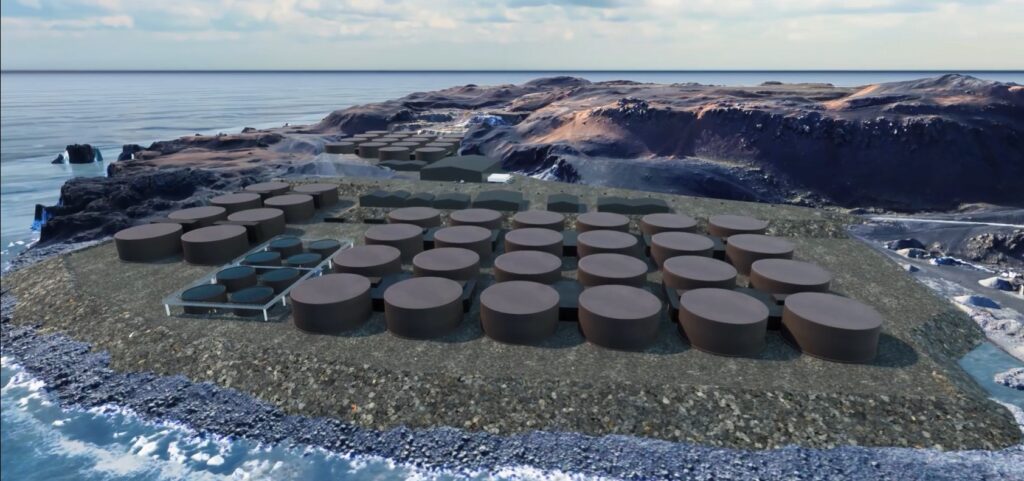
News
News
Systems
Laxey secures US$45 million for land-based salmon farm
September 15, 2023 By Nestor Arellano
 Laxey's planned recirculating aquaculture system (RAS) facility. (Image: Laxey)
Laxey's planned recirculating aquaculture system (RAS) facility. (Image: Laxey) Land-based salmon farmer, Laxey (formerly known as Icelandic Land Farmed Salmon) recently announced that it has raised ISK 6 billion ($45 million) from Islandic investors. The company is building a fish farm in Vestmannaeyjar, an archepelago in Iceland; A fry farm in Friðarhöfn; And a rearing farm in Viðlagafjörður.
Laxey said it expects the rearing station to produce about 32,000 tons of salmon in 2031. Currently, about 2,000 tons of salmon are produced in land-based farms in Iceland.
The company said the farm in Vestmannaeyjar will be built in six equal phases. The first phase is expected to be ready in mid-2024 and the first slaughter is planned for late 2025.
“We are extremely happy that this milestone has been reached and the trust that investors show in LAXEY. We have been working on this project since 2019 and see great opportunities in the production of Icelandic land-farmed salmon in the Vestmanna Islands and sales on international markets,” said Lárus Ásgeirsson, chairman of the board at Laxey.
“The first phase alone will be operationally sustainable, but each additional phase will increase the efficiency of production, with lower investment expenses and operating costs per kilo of salmon produced,” a press release from the company said.
The company chose the location because conditions in Vestmannaeyjar are favourable for land-based aquaculture.
“A continuous water recycling system is used, where about 65 per cent of the sea is reused, while 35 per cent is fresh ground sea pumped up from boreholes in the area. The water temperature is particularly favourable for salmon farming,” according to Laxey.
The company also said the local municipality is supportive of the project. More than 100 people will work at the company when it has reached full production capacity. The operations will also produce some secondary jobs throughout the year.
“Laxey will base its production on green values, where 100 per cent renewable energy is used and waste will be processed for fertilizer production. In addition, it will be emphasized that the salmon will be transported by sea to the market in order to reduce the carbon footprint,” the company said.
Print this page